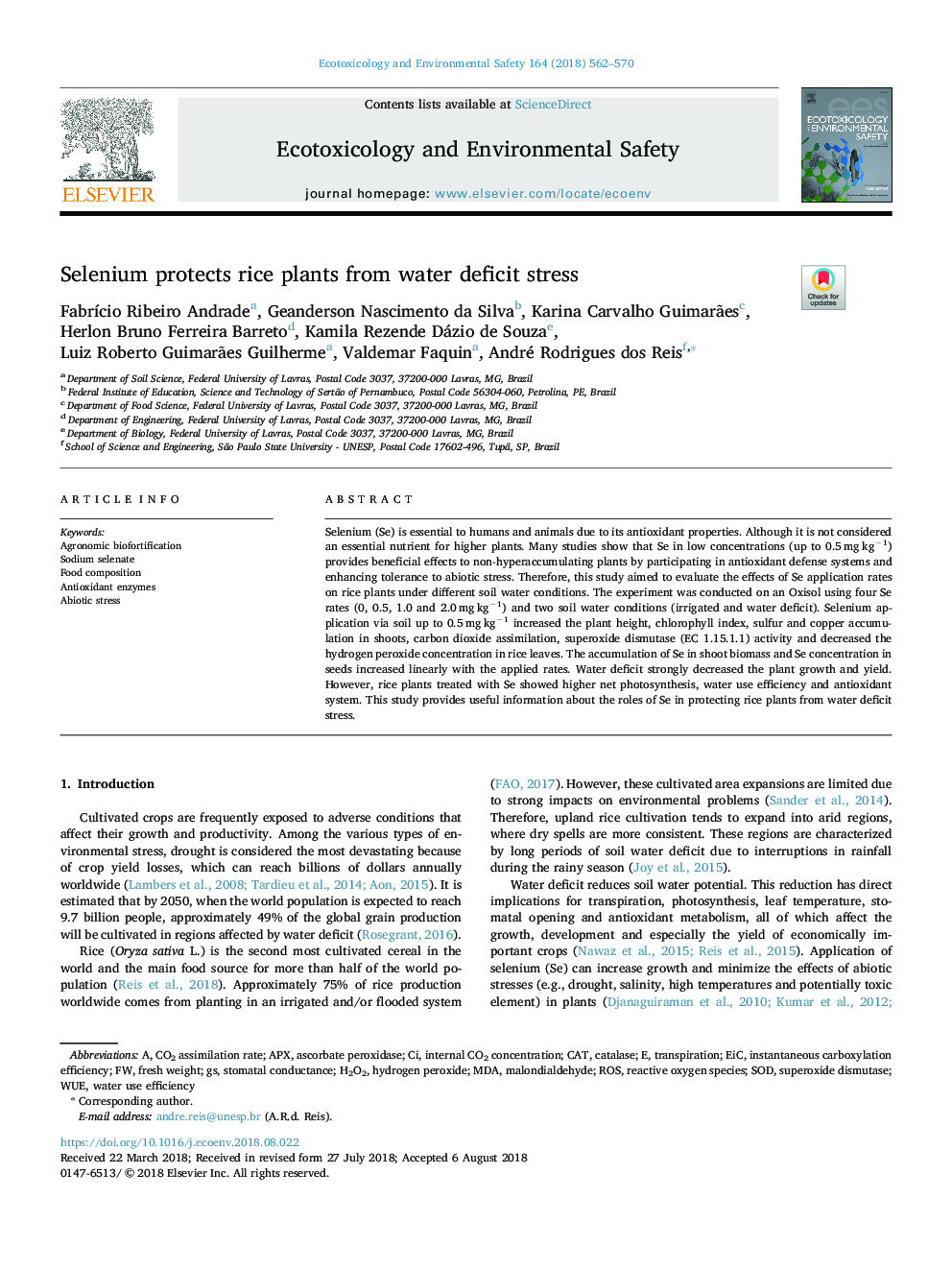| Article ID | Journal | Published Year | Pages | File Type |
|---|---|---|---|---|
| 8853187 | Ecotoxicology and Environmental Safety | 2018 | 9 Pages |
Abstract
Selenium (Se) is essential to humans and animals due to its antioxidant properties. Although it is not considered an essential nutrient for higher plants. Many studies show that Se in low concentrations (up to 0.5â¯mgâ¯kgâ1) provides beneficial effects to non-hyperaccumulating plants by participating in antioxidant defense systems and enhancing tolerance to abiotic stress. Therefore, this study aimed to evaluate the effects of Se application rates on rice plants under different soil water conditions. The experiment was conducted on an Oxisol using four Se rates (0, 0.5, 1.0 and 2.0â¯mgâ¯kgâ1) and two soil water conditions (irrigated and water deficit). Selenium application via soil up to 0.5â¯mgâ¯kgâ1 increased the plant height, chlorophyll index, sulfur and copper accumulation in shoots, carbon dioxide assimilation, superoxide dismutase (EC 1.15.1.1) activity and decreased the hydrogen peroxide concentration in rice leaves. The accumulation of Se in shoot biomass and Se concentration in seeds increased linearly with the applied rates. Water deficit strongly decreased the plant growth and yield. However, rice plants treated with Se showed higher net photosynthesis, water use efficiency and antioxidant system. This study provides useful information about the roles of Se in protecting rice plants from water deficit stress.
Keywords
MDACO2 assimilation rateAPXinternal CO2 concentrationWUECATROSHydrogen peroxideAntioxidant enzymesAbiotic stressWater use efficiencyFood compositionTranspirationSODsodium selenateSuperoxide dismutasemalondialdehydeEICStomatal conductanceH2O2fresh weightascorbate peroxidaseCatalaseReactive oxygen species
Related Topics
Life Sciences
Environmental Science
Environmental Chemistry
Authors
FabrÃcio Ribeiro Andrade, Geanderson Nascimento da Silva, Karina Carvalho Guimarães, Herlon Bruno Ferreira Barreto, Kamila Rezende Dázio de Souza, Luiz Roberto Guimarães Guilherme, Valdemar Faquin, André Rodrigues dos Reis,
